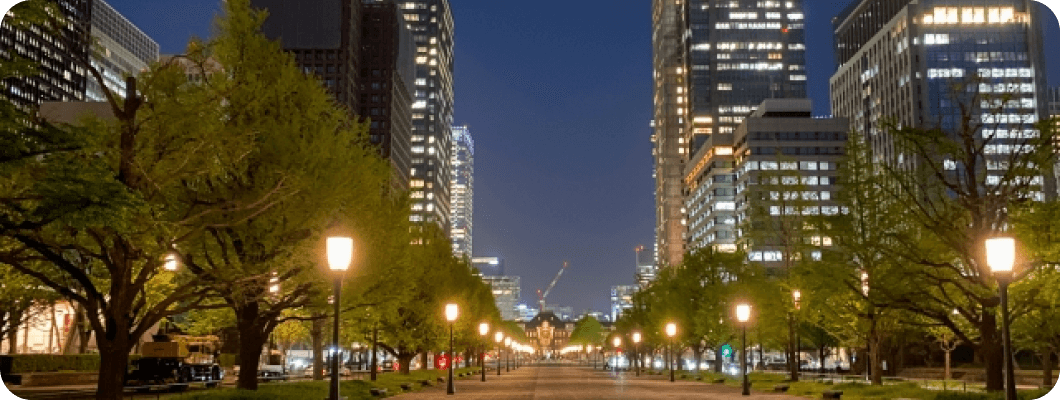
NEWS

What would a foreigner do if a traffic accident happened in Japan?①
BLOG

Today, continuing from last week, we continue our series on foreigners driving in Japan.
When it comes to driving, traffic accidents are a fact of life.
Here we will introduce the situation and how to deal with it.
Traffic accidents occur everywhere in Japan, and you never know when you might have an accident with someone of any nationality. With the ever-increasing population of foreigners in Japan, it is not uncommon for traffic accidents to occur with foreigners in Japan as well.
If you are the perpetrator of a traffic accident and the victim is a foreigner, or if you are injured by a foreigner and wish to claim compensation, what are the differences compared to a traffic accident between Japanese and non-Japanese?
When can a foreigner drive a car in Japan?
First of all, when can a foreigner drive a car in Japan?
A foreigner who has obtained a driver's license in Japan, but also has an international driver's license based on the Convention on Road Traffic (Geneva Convention), or a driver's license from the Republic of Estonia, Swiss Confederation, Federal Republic of Germany, Republic of France, Kingdom of Belgium, Principality of Monaco, or Taiwan (provided that a Japanese translation prepared by a person designated by a government ordinance is attached). (Only if it is accompanied by a translation in Japanese made by a person designated by government ordinance.) Foreign nationals may drive a motor vehicle in Japan even if they have a driver's
Which country's laws apply?
In the event of a traffic accident with a foreigner, which law will be applied, the law of the foreigner's home country or the law of Japan?
In Japan, the “Act on the General Rules for the Application of Laws” sets forth the rules as to which country's laws apply to legal issues involving foreign nationals.
In the case of torts such as traffic accidents, Article 17 of the same law stipulates that, in principle, the law of the “place where the result occurred” should be applied.
In the case of traffic accidents, the “place where the result occurred” is considered to be the place where the accident occurred. Therefore, if the accident occurred in Japan, Japanese law will be applied in principle, even if the other party is a foreigner.
Damages when a foreigner is the victim
Japanese law will apply to traffic accidents that occur in Japan with a foreigner.
However, in terms of the specific amount of damages, there may be problems that arise because the victim is a foreigner, and the conclusion will not necessarily be the same as that for a traffic accident between Japanese nationals.
When a foreign national receives medical treatment in Japan, compensation for injuries based on the cost of medical treatment and the length of hospital stay is considered the same as for a Japanese national, but in the case of a foreign national, medical treatment and travel expenses in the home country may be incurred.
In addition, the calculation of death compensation, lost time injuries, etc. may require a different approach than for Japanese nationals. The following is an explanation of each damage item.
Medical treatment and travel expenses in the home country
When a foreigner is a victim, he/she may receive medical treatment in his/her home country instead of in Japan.
The treatment in the home country will naturally differ from the general treatment in Japan in terms of content and cost, and will also require additional travel expenses.
In some cases, court decisions have recognized the cost of medical treatment in the home country as damages, taking into consideration the necessity and reasonableness of the treatment.
Court cases in which medical expenses incurred in the home country were recognized as damages
For example, in a case where a Korean national who suffered from a cervical sprain was unable to receive X-rays or medication because she was pregnant at the time, she returned to Korea and received Chinese herbal treatment. As a result, the Tokyo District Court awarded the plaintiff over 1,000,000 yen in damages for treatment in Korea (judgment dated January 28, 1998).
However, the court refused to award the victim's travel expenses for returning to Japan, because the treatment she received in Korea was not necessarily unavailable in Japan, and her symptoms were not so bad that she needed to return to Japan to receive nursing care from her mother.
A case in which travel expenses to the victim's home country were awarded as damages
On the other hand, there is a case (judgment dated August 27, 1996 of Tokyo District Court) in which a Pakistani national victim returned to Pakistan on the recommendation of a Japanese doctor, received treatment by a local psychiatrist, and recovered to a partial remission when she came back to Japan, and the air fare between Japan and Pakistan was recognized as a damage causally related to the traffic accident. There is also a case (judgment dated August 27, 1996 of the Tokyo District Court) in which the airfare between Japan and Pakistan was recognized as damages causally related to the traffic accident.
In order for medical treatment and travel expenses in the home country of a foreign national to be recognized as damages, it is considered to be a case where necessity and reasonableness are affirmed, taking into consideration specific circumstances such as symptoms and the course of treatment in each case.
Fun and danger go hand in hand!
We will continue next week.
We will bring you more information next week that will give you peace of mind!
instagram
realestatejapan
PDF file









